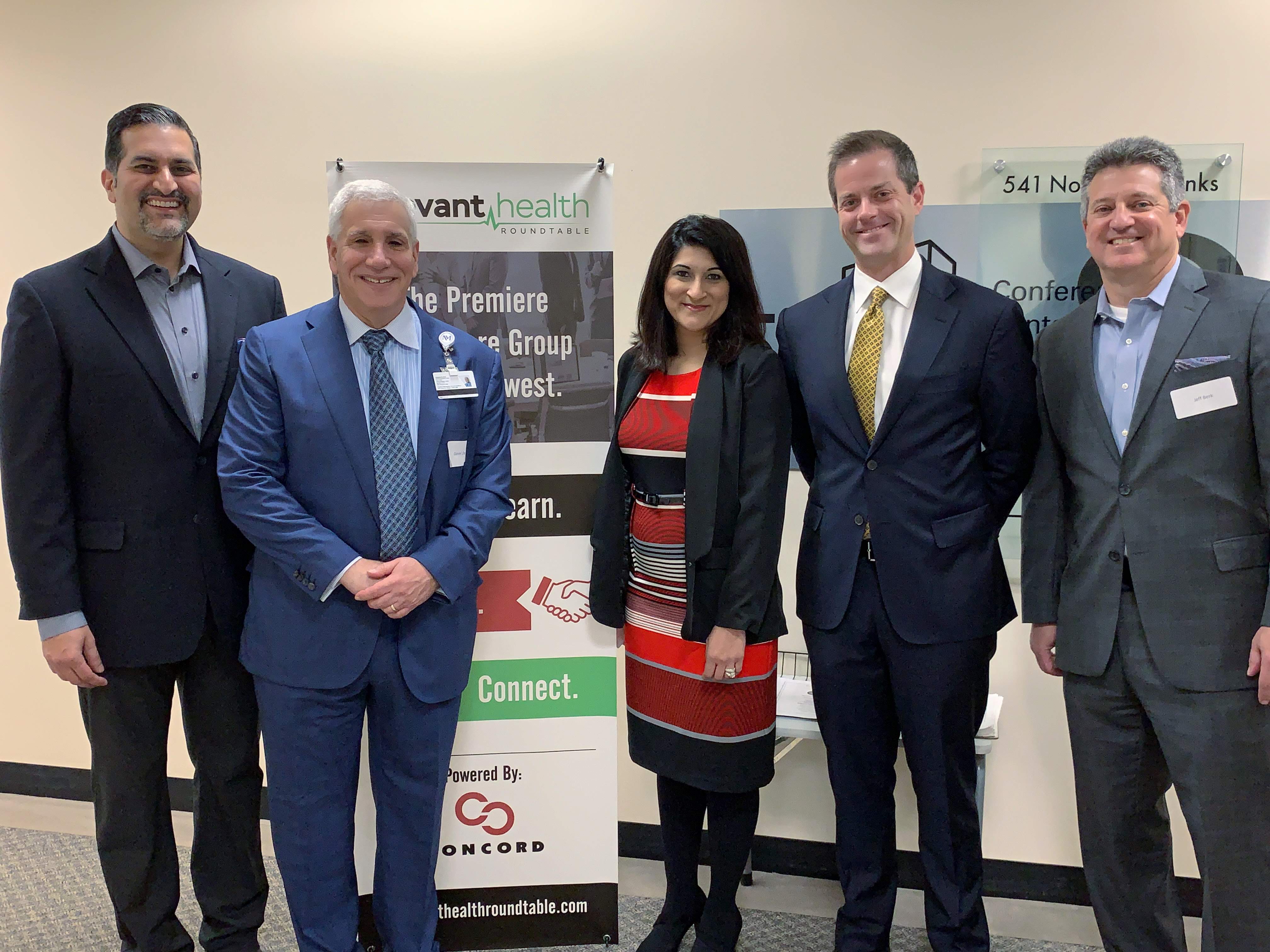With the help of technology, the healthcare industry is steadily moving towards more frequent and meaningful consumer engagement. Artificial Intelligence aids in patient communication and new digital platforms build a sense of community outside the doctor’s office, as healthcare payers and providers seek to build a seamless experience between the digital and physical world. Dr. Daniel Derman of Northwestern Medicine, Dimple Vashi of Anthem, and Jason Considine of Experian Health explored the current landscape of a consumer’s journey and shared the trends that will shape the future of care.
Perspectives on Consumer Engagement
- Payers are working to change their reputation and be viewed as a partner. People are looking for simplicity and transparency – they want to know what things cost.
- Providers aim to stay relevant and top of mind throughout a patient’s entire journey.
- Vendors look to enable experiences and connect with the consumer along the continuum of care.
Technology Challenges
- The industry is moving to incorporate data from wearables in a meaningful way. Findings from the Apple Watch study were recently released, where over 400,000 participants enrolled over the span of just eight months. There’s a huge opportunity to connect how patients live their lives outside of the care family.
- A huge issue in healthcare is finding additional ways to use data to get identity right. In Houston, the Harris County Hospital District found 2,488 patients named Maria Garcia, where 231 had the same birthday.
- There’s a gap in integrating all of the great point solutions into seamless systems, where providers can apply disparate data in a useful way.
Now, Next, Later
- In the Netflix model, they focused first on mailing DVDs, moved on to streaming capabilities, and ultimately produced data-driven content. Similarly, the healthcare industry needs to focus first on getting the basics of experience right, adding in more functionality, and, finally, streamlining the entire lifecycle of patient health.
- Payers are pushing towards self-service and focusing on digital capabilities from end-to-end.
- Over time, we can expect to see a greater emphasis on the social determinants of health. Healthcare organizations are sitting on a large collection of “lifestyle data” and can use that information to make predictions on how to access and improve care.
Closing Thoughts
In consumer experience, the name of the game is simplicity and transparency. Healthcare has historically lagged behind in this area, but the major players are making strides to keep up with competitors across industries.
Extra Credit
Stanford Medicine Announces Results of Unprecedented Apple Heart Study. In the largest ever of its kind, over 400,000 people participated in the study using Apple Watch. Apple and Stanford created the study to evaluate Apple Watch’s irregular rhythm notification.
Most Health Systems Don’t Offer Upfront Cost Information to Patients, Survey Finds. Cost is a huge determinant for patients to decide where they receive care, yet 57% of health systems did not offer this information before a procedure or treatment in a study conducted by patient financial engagement company VisitPay.
What’s to Keep Amazon from Competing in Brick-And-Mortar Healthcare? Not Much. Amazon’s launch of new ‘urban grocery stores’ could serve as a possible beachhead for expansion into outpatient medical care services.
